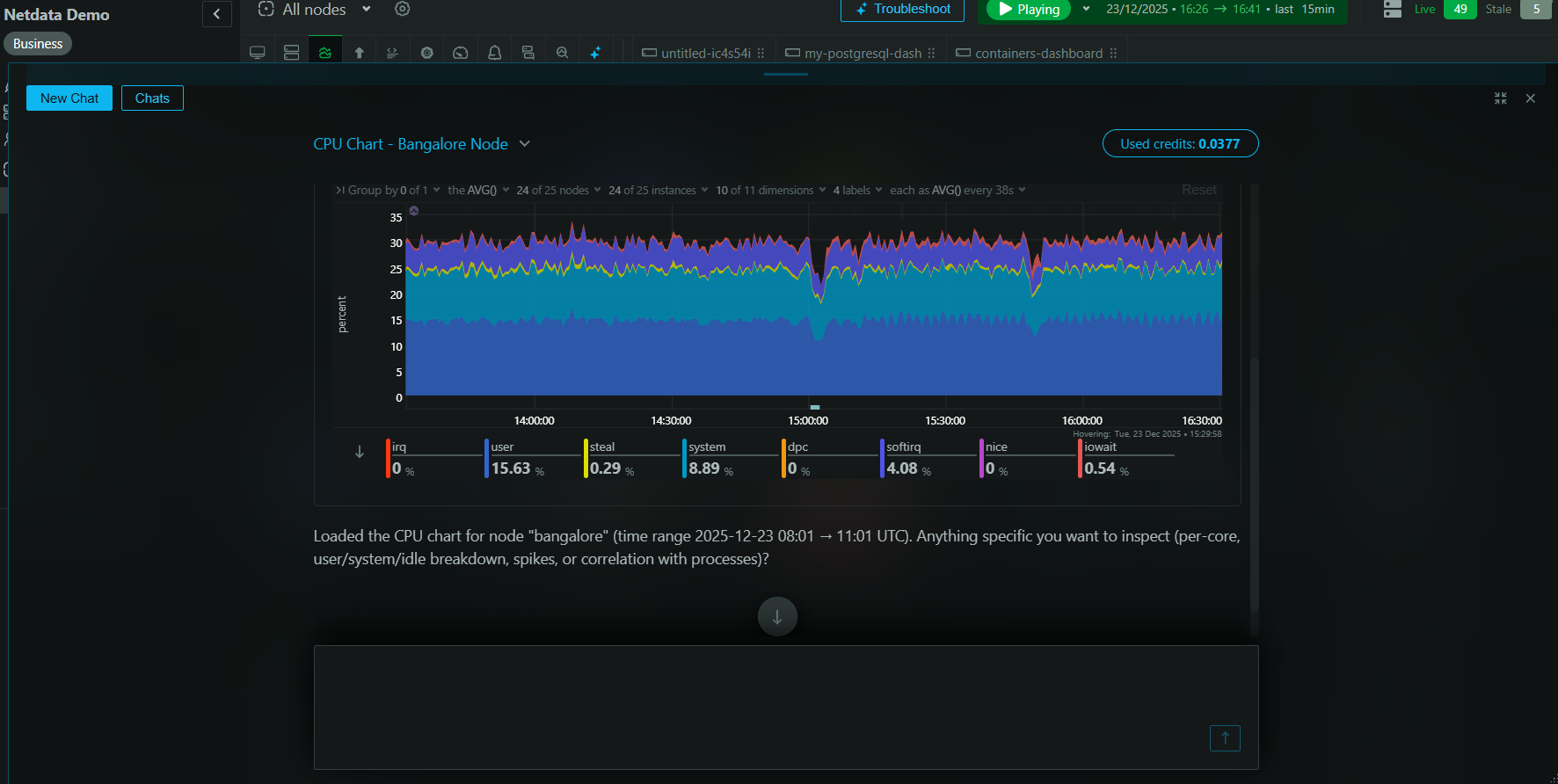VerneMQ Monitoring
What Is VerneMQ?
VerneMQ is a high-performance, distributed MQTT broker implemented in Erlang/OTP. It’s designed to handle large numbers of concurrent clients and is particularly well-suited for applications requiring low latency. Utilizing the full power of Erlang, VerneMQ offers a robust and scalable solution for message brokering.
Monitoring VerneMQ With Netdata
Netdata provides a comprehensive VerneMQ monitoring tool, which is part of its suite of monitoring solutions. By integrating VerneMQ monitoring, you can track important performance metrics in real-time, allowing you to proactively manage system health and diagnose potential issues before they become critical.
Netdata’s Live Demo offers an excellent preview of these capabilities, providing insights into how VerneMQ operates under various circumstances. To dive deeper, you can read the detailed VerneMQ collector documentation.
Why Is VerneMQ Monitoring Important?
Monitoring VerneMQ is crucial because it enables DevOps, SREs, and IT professionals to ensure the reliability and performance of their message brokering system. VerneMQ acts as a pivotal component in IoT and distributed network applications, where even minor disruptions or delays can significantly impact end-user experience or data processing capabilities.
What Are The Benefits Of Using VerneMQ Monitoring Tools?
Using tools for monitoring VerneMQ, like Netdata, provides a multitude of benefits, including:
- Real-time insights: Continuously updated performance data helps quickly identify anomalies and bottlenecks.
- Enhanced reliability: Effectively monitor the QoS and message delivery statuses to maintain high availability.
- Data-driven decisions: Leverage detailed metrics to make informed adjustments to configurations and resource allocations.
Understanding VerneMQ Performance Metrics
Netdata collects a sizeable array of metrics from VerneMQ, shedding light on different operational aspects. Here are some key metrics you will encounter:
Open Sockets
Tracks the number of open sockets, helping determine connection stability.
Socket Errors
Monitors errors in socket operations, useful for diagnosing network issues.
Queued PUBLISH Messages
Reflects messages that are waiting to be processed or delivered.
Node Uptime
Indicates the total operational uptime of the VerneMQ node.
MQTT Auth Packets
Tracks authentication packet flow, crucial for security assessments.
| Metric | Description |
|---|---|
| vernemq.node_socket | Open Sockets |
| vernemq.node_socket_errors | Socket Errors |
| vernemq.node_queue_messages | Queued PUBLISH Messages |
| vernemq.node_uptime | Node Uptime |
| vernemq.node_mqtt_auth | MQTT Auth Packets |
For a comprehensive list and description, refer to the official VerneMQ metrics documentation.
Advanced VerneMQ Performance Monitoring Techniques
Advanced users can configure Netdata to leverage additional parameters such as multi-instance monitoring or custom alerting rules tailored to the specific needs of high-throughput environments. Optimizing the data collection frequency through settings like update_every ensures minimal resource overhead while maximizing data fidelity.
Diagnose Root Causes Or Performance Issues Using Key VerneMQ Statistics & Metrics
To effectively diagnose issues within VerneMQ, focus on identifying patterns in key metrics such as message delivery rates, socket operation consistency, and resource utilization. Contextual alerts and historical data review play a central role in pinpointing deviations and determining corrective actions.
Interested in optimizing your VerneMQ ecosystem? Sign up for a free trial and start monitoring with Netdata today.
FAQs
What Is VerneMQ Monitoring?
VerneMQ monitoring involves tracking and analyzing various metrics related to the performance and health of a VerneMQ instance to ensure optimal operation and prevent failures.
Why Is VerneMQ Monitoring Important?
Monitoring is crucial for maintaining the reliability and performance of VerneMQ, especially in applications sensitive to delays and message loss.
What Does A VerneMQ Monitor Do?
A VerneMQ monitor assesses the health and efficiency of the broker, providing insights into operational metrics that help manage and optimize message workflows.
How Can I Monitor VerneMQ In Real Time?
You can monitor VerneMQ in real time by using Netdata’s comprehensive monitoring suite, which offers detailed metrics dashboards and alert settings. Try the live Netdata demo.









